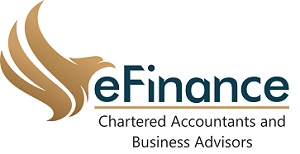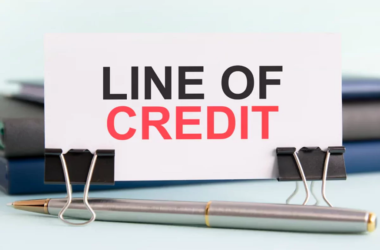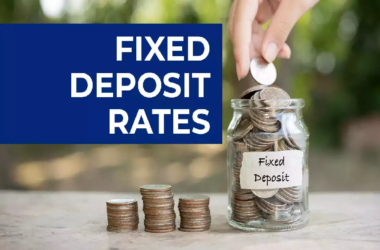It is vital to remember that refinancing can help you save money or spend too much, depending on numerous factors. The steps will pay themselves off if you decide to replace a current debt with a new one that features better terms.
You should check here to learn more about refinancing process.
We can differentiate numerous reasons household owners decide to refinance, such as:
- To reduce the term
- To get a lower interest rate
- To convert from ARM (adjustable-rate mortgage) to an FRM (fixed-rate mortgage)
- To take advantage of home equity to deal with a specific emergency, consolidating debt or financing a significant purchase
Since the process will cost you upfront between three and six percent of the principal, the entire procedure requires title search, appraisal, and application fees. Therefore, you should determine whether it is a wise decision to do it or not.
Secure Lower Rates
One of the biggest reasons people choose to refinance is to reduce the interest rate on their existing debt. According to the general rule, it is a perfect idea to do it if you can reduce the interest by two percent.
Still, numerous lenders state that one percent saving is a great incentive that will help you choose it over others. We recommend you use a mortgage calculator to determine all expenses you need to consider before making up your mind.
When you reduce the interest, you can save money and boost the home’s equity, among other things. Therefore, you can reduce the monthly payment. By choosing a refinancing (refinansiering lav rente), you can save money in the long run.
Shorten the Term
As soon as the interest rates fall, you will have a chance to refinance without too many changes in monthly installments but by reducing the general term.
Therefore, if you have a thirty-year fixed-rate mortgage, refinancing can cut the term to half by providing you with a slight change in monthly payments.
Everything depends on the overall interest, which you should consider before you make up your mind.
Convert to Fixed-Rate or Adjustable-Rate Mortgage
Although adjustable-rate mortgages come with the lowest rates possible initially, you should know that periodic adjustments can lead to significant increases. Therefore, it is way better to have a predictable amount that cannot change in a fixed-rate mortgage.
Suppose the interest boosts your monthly payment to an amount you cannot afford. In that case, we recommend you refinance the loan, which will convert it into a fixed-rate mortgage and eliminate future concerns.
On the other hand, if you wish to convert from fixed to adjustable, it can be a great strategy if the rates are falling. However, the rates can spike after a while because they operate in a cyclic aspect.
You need to be ready for the spike and increase the same way you are prepared for decreases. Therefore, fixed options will offer you sometimes higher, sometimes lower rates, but you can ensure predictability.
Consolidate Debt or Tap Equity
Most reasons mentioned above come with sound financial aspects, but you should also know that refinancing can lead to severe consequences.
The worst thing you can do is tap your household’s equity with an idea to cover significant expenses such as college education or home remodeling.
The process comes with reasonable justification because remodeling will increase the home’s value or lower the loan than the borrowed debt you already have.
One of the most common justifications is that mortgage interest is tax-deductible. Of course, the process is valid, but if you decide to increase the number of years, that is not an intelligent decision.
As a result, you will spend a dollar to get the thirty-cent deduction, which is not reasonable in the long run.
However, since the Tax Cut and Jobs Act entered the scene, the interest you can deduce dropped significantly, which means you cannot get the same amount beforehand.
On the other hand, household owners decide to enter the refinancing process, which allows them to consolidate debt. That way, you can replace the high-interest debt with a low-interest one, which can be a great idea at its face value.
However, you will not get financial prudence automatically, which is something you should remember. Therefore, you should choose this steponly if you can relieve yourself from debt through it.
It is vital to do it only if you wish to stay in your household for more than a few years. Understand that a large percentage of people have reached a point of high-interest debts on cars, credit cards, and other purchases.
Mortgage refinancing can help you deal with this problem. However, you can easily create more significant losses that may lead to lost home equity, wasted fees for refinancing, and additional years of interest payments.
The chances are high you will repeat the credit card debt, leading to severe problems afterward. Check out this guide: https://www.wikihow.com/Prepare-to-Refinance to learn how to prepare for the process.
Finally, you can do it in case of a severe emergency you need to handle. However, it would be best to weigh all options before taking this step.
If you choose the cash-out option, you will end up with a significant interest rate, affecting your monthly payments.
Final Word
It is vital to remember that refinancing is a great move that will help you reduce the mortgage payment, build equity and shorten the loan term.
Doing it carefully can help you remove the debt and reduce it to a minimum. Before you decide to do it, you should analyze your current situation and determine whether you wish to live in the house in the next thirty years.
That way, you can prevent potential expenses from happening.






